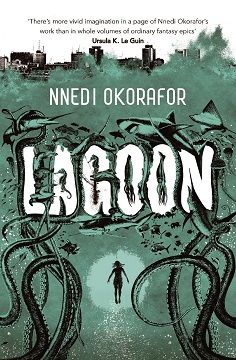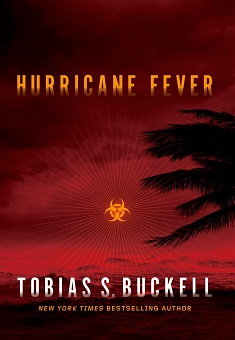
Lagoon
Nnedi Okorafor
306 pages
published in 2014
There has been a bit of a spat about the use of dialect and “non-standard” English in science fiction lately, as various people were critical about using dialect all together, finding it gimmicky or too difficult. As Juan Diaz put it “Motherfuckers will read a book that’s one third Elvish, but put two sentences in Spanish and they [white people] think we’re taking over” which is more true than it should be. A novel like Lagoon therefore, which is not only set in a city and country –Lagos, Nigeria — unfamiliar to the average science fiction reader, but which is (partially) written in Nigerian English, using Nigerian vocabulary and grammar, may be somewhat of a challenge. Because while we as science fiction readers supposedly crave the shock of the new, often it’s only if it’s cloaked in familiar language and cultural expectations.
And I have to admit, I did have to struggle a little bit with Lagoon, getting used to the language and the setting, though to nowhere near the extent I had to get used to Feersum Endjinn. For me this was a turn-on rather than a turn-off; I don’t mind working harder for my entertainment if a book is worth it and Lagoon certainly is. This is a novel of first contact where the people encountering the alien are not square jawed space marines but a marine biologist (Adaora), a troubled soldier (Agu) and a world famous rap star (Anthony), taken as representatives of humanity into the sea as the aliens landed there, to be returned to Lagos with Ayodele, an envoy from the aliens who needs to meet up with the president of Nigeria to discuss the future of the country now they’ve made their home there.
